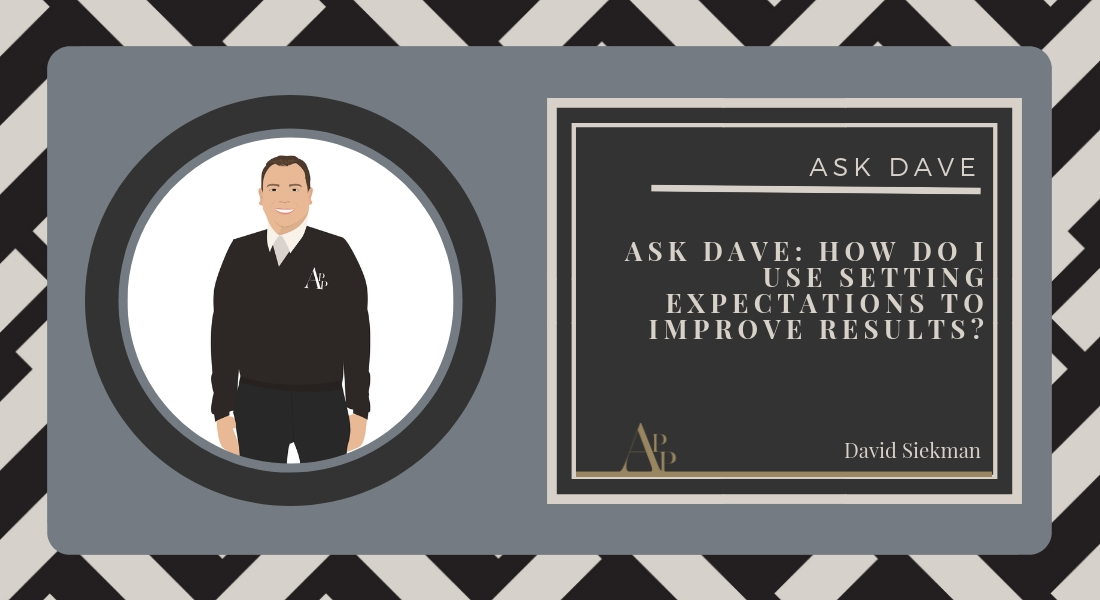One of the things I hate to hear when I am working with a service provider is an undefined time frame as to when a problem will be resolved. Some of the ones I hate are:
- “We will be there between 3 and 6”
- “I’ll let you know by the end of the day”
- “I’ll get back to you next week”
There are times when certain statements like these make sense. I completely understand that some service work can vary in time so it’s hard to set an appointment for 4:00 knowing the technician may be available sooner or get delayed. It is similar with getting back to me by the end of the day. We don’t always know the effort that will be built into solving an issue. Getting back to me next week shouldn’t be acceptable. However, even though a couple of these make sense, as a consumer this is not providing me with a great customer experience.
The best customer experience is when a time is set AND when that expected time is also met. The obvious key is that we have to do both. And this typically drives the fear around setting the expectation; we don’t want to set a time and then not be able to deliver.
Let’s first look at the value of setting a specific follow up time versus using “the end of the day” or “tomorrow morning”. We need to consider the difference in what we believe we are saying and what the customer is hearing. When we say “the end of the day”, we are thinking we are successful as long as we reach them by 5:00. When the client or prospect hears “the end of the day”, they are thinking it could be any time between now and the end of the day. This keeps this issue at the top of their thought process thinking that you could be calling at any moment. This can be even worse when we let a night pass. By the time 9am rolls around the next day, the client is feeling like it is taking forever to get an answer even if you deliver in your promised time frame.
Contrast that to a specific time being set. Now, the client does not have to keep it at the top of their mind. If I set a time for 4:30, I can call them right at 4:30 and they haven’t had to give any more thought to the item. Even if I need to buy some extra time and can’t get back to them until tomorrow. Promise a call for 10:30. Now instead of thinking about it all day and night, they feel confident that you are working on it.
Not only does this provide for a better client experience, but if I’m sitting around not sure when you are going to be calling and the item is still at the top of my mind, I could very easily start thinking about other options for insurance. This can be compounded by the bombardment of ads that I get on the radio, TV, over my phone and computer, or even trying to drive down the street up on the billboard. Think about your client sitting their at night watching TV and paying some bills. The item is still on his or her mind, the commercials all have spots about insurance and the online banking is promoting their insurance services. If they are watching a sporting event they are even more heavily bombarded with insurance ads through sponsorships!
Another benefit is that you will increase the odds of the client answering the phone. There is a more of a verbal commitment that they have agreed to be available at that time. If you call them “before the end of the day” it is very likely that something else will have come up and they aren’t available or even simply that because they didn’t commit to a certain time, you may catch them at a point where they don’t want to deal with it and don’t feel like they need to answer.
A third benefit is simply delivering on a promise. This can go a long way towards building rapport and trust. Clients and prospects want to do business with people they like and trust and delivering at a specified and agreed upon time can really drive a relationship. Remember the customer experience that you are delivering is being compared to all of the customer experiences. This can work in our favor if the client just called the cable company but if they just did a one-click return through Amazon, then we really need to provide a ridiculously amazing customer experience!
I fully understand that depending on your role you probably have a lot of unplanned inbound service requests. As mentioned before, the typical fear to committing to a specific time is over-promising and not delivering. There are a couple of ways to combat this.
First, just turn the vague time frame into a specific time. If you want to say “the end of the day”, promise it 30 minutes before you are leaving for the day. That extra 30 minutes probably won’t be necessary and getting all of the benefits outlined above are more than worth it. If you need overnight and want to promise “tomorrow morning”, turn it into “11:30 tomorrow”.
The second approach is being a little more firm with the inbound requests on your commitments. If you have already promised to deliver something to one client at 3:00 and you get a call at 2:45 from another client, you need to let them know that you have an appointment or meeting at 3:00. You can give them that 15 minutes but then you will need to get back to them if they need more time. If you approach this the right way, the majority of your clients will respect your time and realize this commitment to another client works to their advantage when you promise to deliver something for them.
Remember too that it is not just about SETTING the expectation but also about being sure to MEET the expectation. Make sure you contact them back at the promised time. They will be impressed you did so; this is a great way to build trust with someone. Setting Expectations is a discussion point in all of our AppX Training Programs (Sales, Retention, Customer Experience). Contact us today to learn more about any of these programs.





